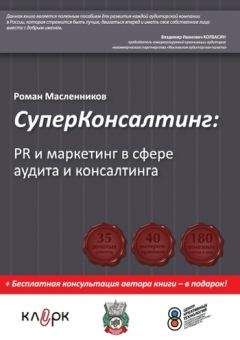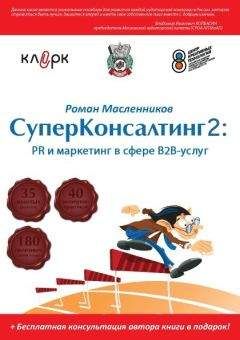Томас Лис - Психология переговоров. Как добиться большего
174
Brewer M. B. In-Group Bias in the Minimal Intergroup Situation: A Cognitive-Motivational Analysis // Psychological Bulletin. – 1979. – № 86. – P. 307–324.
175
Tajifel H. R., Billig R., Bundy С., Flament С. Social Categorization and Intergroup Behavior // European Journal of Social Psychology. – 1971. – № 1. – P. 49–178; Turner J. C. The Experimental Social Psychology of Intergroup Behavior // Intergroup Behavior / J. C. Turner, H. Giles (Eds.). – Chicago: University of Chicago Press, 1981. – P. 66–101.
176
Kramer R. M. Intergroup Relations and Organizational Dilemmas: The Role of the Categorization Process // Research in Organizational Behavior. – 1991. – № 13. – P. 191–228.
177
Wildschut T., Pinter B., Vevea J. L., Insko С A., Schopler J. Beyond the Group Mind: A Quantitative Review of the Interindividual Intergroup Discontinuity Effect // Psychological Bulletin. – 2003. – № 129. – P. 698–722; Pinter B., Insko С. A., Wildschut T., Kirchner J. L., Montoya R. M., Wolf S. T. Reduction of Interindividual-Intergroup Discontinuity: The Role of Leader Accountability and Proneness to Guilt // Journal of Personality and Social Psychology. – 2007. – № 93. – P. 250–265.
178
Galinsky A. D., Seiden V. L., Kim P. H., Medvec V. H. The Dissatisfaction of Having Your First Offer Accepted: The Role of Counterfactual Thinking in Negotiations // Personality and Social Psychology Bulletin. – 2002. – № 28(2). – P. 271–283.
179
Page S. The Difference. – Princeton, NJ: Princeton University Press, 2007; Mannix E. A., Neale M. A. What Differences Make a Difference? The Promise and Reality of Diverse Teams in Organizations // Psychological Science in the Public Interest. – 2005. – № 6. – P. 31–55.
180
Polzer J. P. Intergroup Negotiations: The Effect of Negotiating Teams // Journal of Conflict Resolution. – 1996. – № 40. – P. 678–698.
181
Walton R., McKersie R. A Behavioral Theory of Labor Negotiations. – New York: McGraw Hill, 1964.
182
Stout R., Cannon-Bowers J., Salas E., Milanovich D. Planning, Shared Mental Models, and Coordinated Performance: An Empirical Link Is Established // Human Factors. – 1999. – № 41. – P. 61–71.
183
Behfar K. J., Peterson R. S., Mannix E. A., Trochim W. M. The Critical Role of Conflict Resolution in Teams: A Close Look at the Links between Conflict Type, Conflict Management Strategies, and Team Outcomes // Journal of Applied Psychology. – 2008. – № 93(1). – P. 170; Brett J. M., Friedman R., Behfar K. How to Manage Your Negotiating Team // Harvard Business Review. – 2009. – № 87(9). – P. 105–109.
184
Murnighan J. K. Organizational Coalitions: Structural Contingencies and the Formation Process // Research on Negotiation in Organizations. – 1986. – № 1. – P. 155–173; Polzer J. T., Mannix E. A., Neale M. A. Interest Alignment and Coalitions in Multiparty Negotiation // Academy of Management Journal. – 1998. – № 41. – P. 42–54.
185
Murnighan J. K., Brass D. Intraorganizational Coalitions // Research in Negotiating in Organizations / R. Lewicki, B. Sheppard, M. Bazerman (Eds.). – Greenwich, CT: JAI Press, 1991. – P. 283–306.
186
Watkins M., Rosegrant S. Sources of Power in Coalition Building // Negotiation Journal. – 1996. – № 12. – P. 47–68.
187
Polzer J. T., Mannix E. A., Neale M. A. Interest Alignment and Coalitions in Multiparty Negotiation // Academy of Management Journal. – 1998. – № 41. – P. 42–54.
188
Murnighan J. K., Brass D. Intraorganizational Coalitions // Research in Negotiating in Organizations / R. Lewicki, B. Sheppard, M. Bazerman (Eds.). – Greenwich, CT: JAI Press, 1991. – P. 283–306.
189
Во II веке до нашей эры Марк Порций Катон Старший в своем трактате «О земледелии» (De Agri Cultura, 2:7) рекомендует аукционы для продажи урожая и сельхозинвентаря, а в другом своем труде (Orationum Reliquae, 53:303, Tusculum) – аукционы для домашней утвари. Плутарх в «Сравнительных жизнеописаниях» (Vitae Parallelae, Poplikos 9:10) упоминает аукционы, проводившиеся в VI веке до нашей эры, на которых продавались военнопленные.
190
Bulow J., Klemperer P. Auctions vs. Negotiations. – NBER Working Paper № w4608, National Bureau of Economic Research, 1994.
191
Malmendier U., Lee Y. H. The Bidder’s Curse // American Economic Review. – 2011. – № 101(2). – P. 749–787.
192
Ku G., Malhotra D., Murnighan J. K. Towards a Competitive Arousal Model of Decision-Making: A Study of Auction Fever in Live and Internet Auctions // Organizational Behavior and Human Decision Processes. – 2005. – № 96(2). – P. 89–103.
193
Malhotra D., Ku G., Murnighan J. K. When Winning Is Every Thing // Harvard Business Review. – 2008. – № 86(5). – P. 78.
194
Ku G., Malhotra D., Murnighan J. K. Towards a Competitive Arousal Model of Decision-Making: A Study of Auction Fever in Live and Internet Auctions // Organizational Behavior and Human Decision Processes. – 2005. – № 96(2). – P. 89–103.
195
Ordonez L., Benson III L. Decisions under Time Pressure: How Time Constraint Affects Risky Decision Making // Organizational Behavior and Human Decision Processes. – 1997. – № 71(2). – P. 121–140.
196
Zajonc R. B. Social Facilitation. – Ann Arbor, MI: Research Center for Group Dynamics, Institute for Social Research, University of Michigan, 1965; Markus H. R. The Effect of Mere Presence on Social Facilitation: An Unobtrusive Task // Journal of Experimental Social Psychology. – 1978. – № 14. – P. 389–397.
197
Rogo Rafael. Strategic Information and Selling Mechanism. – PhD diss., Kellogg School of Management, Northwestern University, Evanston, IL, 2009.
198
Guinness World Records 2013 / C. Glenday (Ed.). – New York: Random House LLC, 2013.
199
Malmendier U., Moretti E., Peters F. S. Winning by Losing: Evidence on the Long-Run Effects of Mergers. – NBER Working Paper № w18024, National Bureau of Economic Research, 2012.
200
Ku G., Galinsky A. D., Murnighan J. K. Starting Low but Ending High: A Reversal of the Anchoring Effect in Auctions // Journal of Personality and Social Psychology. – 2006. – № 90(6). – P. 975.
201
Simonsohn R., Ariely D. When Rational Sellers Face Non-Rational Consumers: Evidence from Herding on eBay. – Working paper, Fuqua School of Management, Duke University, 2007.
202
Curhan J. R., Elfenbein H. A., Kilduff G. J. Getting Off on the Right Foot: Subjective Value Versus Economic Value in Predicting Longitudinal Job Outcomes from Job Offer Negotiations // Journal of Applied Psychology. – 2009. – № 94(2). – P. 524–534.
203
Drolet A. L., Morris M. W. Rapport in Conflict Resolution: Accounting for How Face-to-Face Contact Fosters Mutual Cooperation in Mixed-Motive Conflicts // Journal of Experimental Social Psychology. – 2000. – № 36(1). – P. 26–50.
204
Curhan J. R., Elfenbein H. A., Xu H. What Do People Value When They Negotiate? Mapping the Domain of Subjective Value in Negotiation //Journal of Personality and Social Psychology. – 2006. – № 91. – P. 493.
205
Tinsley С. H., O’Connor K. M., Sullivan B. A. Tough Guys Finish Last: The Perils of a Distributive Relationship // Organizational Behavior and Human Decision Processes. – 2002. – № 88. – P. 621.
206
Curhan J. R., Elfenbein H. A., Kilduff G. J. Getting Off on the Right Foot: Subjective Value versus Economic Value in Predicting Longitudinal Job Outcomes from Job Offer Negotiations // Journal of Applied Psychology. – 2009. – № 94(2). – P. 524–534.
207
Curhan J. R., Elfenbein H. A. What Do People Want When They Negotiate? // The Subjective Value Inventory, 2008. – URL: http://www.subjectivevalue.com.
208
O’Neil B. The Number of Outcomes in the Pareto-Optimal Set of Discrete Bargaining Games // Mathematics of Operations Research. – 1981. – № 6. – P. 571.
209
Raiffa H. Post-Settlement Settlements // Negotiation Journal. – 1985. – № 1. – P. 9.
210




